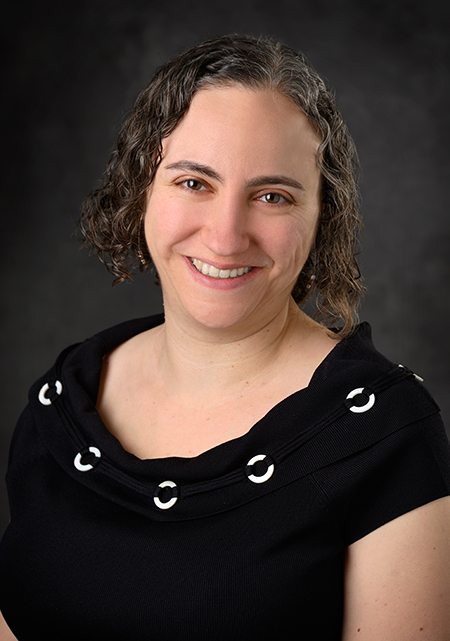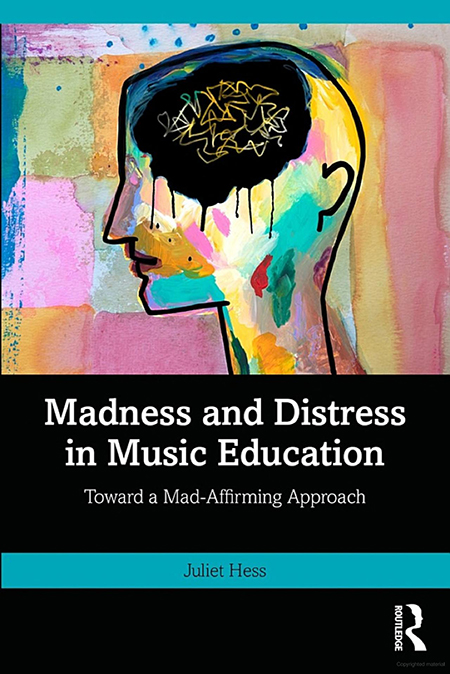
In her new book, Juliet Hess, an associate professor of music education in the Michigan State University College of Music, considers the effects of trauma on teachers and students in the music classroom.
More than 27 years ago, Juliet Hess, was diagnosed as bipolar. Now, her latest book offers an in-depth exploration of mental health and emotional distress in the context of music education.
Madness and Distress in Music Education: Toward a Mad-Affirming Approach offers new ways of thinking about distress in the world of music education. Hess, an associate professor of music education in Michigan State University’s College of Music, constructs ways to support distress through affirming pedagogy, practices, and policies in music education.
“I have often considered the ways that music education spaces both serve—and fail to serve—individuals with mental health differences,” said Hess. “I have used music in equal parts to help and harm myself and imagined that to be true for others as well. As educators, then, we can focus on ways to nurture the helpful and limit the harmful.”
Hess, the author of Music Education for Social Change: Constructing an Activist Music Education and co-editor of Trauma and Resilience in Music Education: Haunted Melodies, said the intended audience for her latest work is music educators across all levels of the field, from preservice teachers to practicing teachers to people in higher education, including teacher education. She explores both the helpful and the harmful, with a focus on considering ways to minimize harm while providing support.

The book, published by Routledge, is the third from Hess as an author or co-editor, and it is intended for music educators from across all levels of the field.
“The global pandemic severely impacted the mental health of people across the world, and we learned that those who had never experienced mental health challenges were now experiencing anxiety and depression alongside people who had been experiencing such issues for a very long time,” Hess said. “The need for mental health support became more imperative than ever.”
Madness and Distress in Music Education addresses impacts on both students and educators by centering the lived experiences of 15 people in a range of roles across music education who self-identify an issue with their mental health.
“We have much to learn from individuals with mental health differences about how we can make a music education that is better, kinder, and more supportive of all students—including those with these differences—as well as supporting the educators themselves.”
Hess joined the MSU faculty in 2015. Her research interests include anti-oppression education, activism in music and music education, music education for social justice, trauma-informed pedagogy, disability and Mad studies, and the question of ethics in world music study.
“All of my scholarship informs my teaching. I write predominantly about equity issues and focus on anti-oppression work, and this extends to better serving individuals with mental health differences,” she said. “As a professor at MSU, I have encountered many students each year who are in distress, and sometimes the level of distress is severe. It is imperative that music educators have tangible ideas about how to help when a person is in distress, and I believe this book will help professors and educators to do that.”



